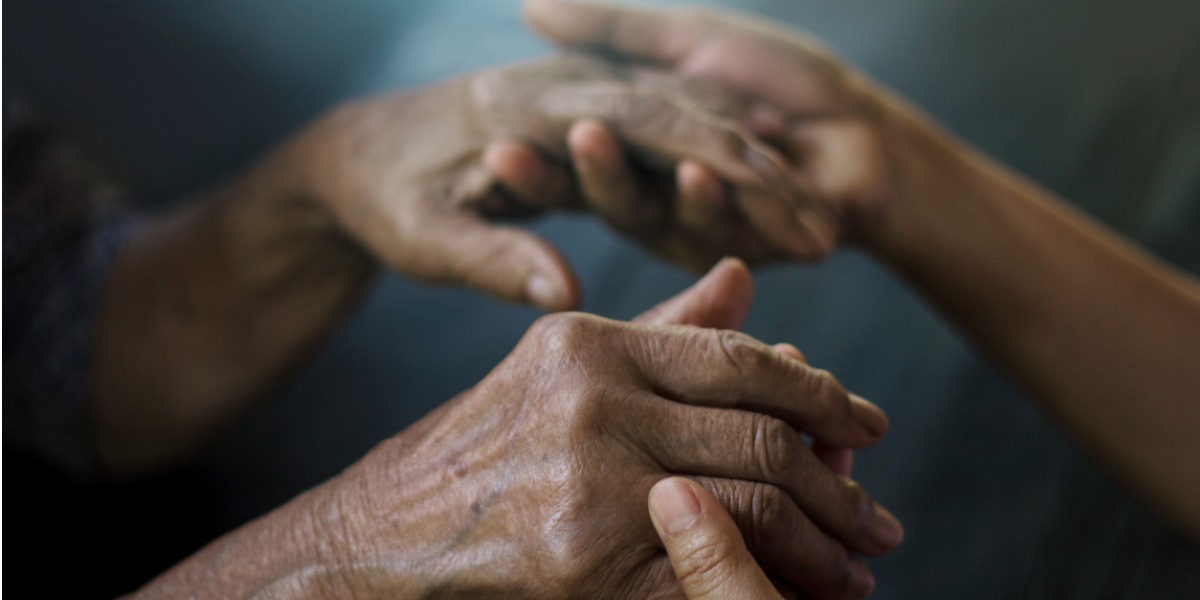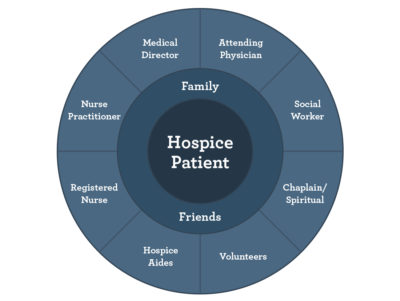
When a patient is nearing the end of life, the family’s role in hospice care is of immense value. According to Elisabeth Kubler-Ross in her book “On Death and Dying,” terminally ill patients who have the opportunity to freely talk about what is on their minds and in their hearts express feeling less stressed, more at peace, and better prepared for whatever comes next.
While the benefits of family involvement in hospice care are clear, how exactly a family participates isn’t always immediately apparent. How can a family caregiver best support their dying loved one alongside the hospice care professionals?
Understanding Hospice Care

Before diving into the role of the family in hospice care, let’s discuss what hospice care is. Hospice care is a service that’s centered on providing pain management, emotional, physical and spiritual support to a patient who has been diagnosed with a disease resulting in a life expectancy of six months or less provided that the disease follows its expected course. The service is more focused on living than dying, and the primary purpose is to improve quality of life. To remain on hospice, a patient must be recertified periodically by their physician. Recertification ensures they continue to meet this condition.
Curative treatments stop while a patient is in hospice care. However, the patient will continue to receive maintenance medications. Examples might include blood pressure medications, insulin or cholesterol medications.
Once hospice care is prescribed, the hospice team develops an individualized care plan. It addresses the patient’s needs and helps them to establish goals. The primary goal is to keep a patient comfortable and give them time and space to focus on the things that matter most to them. In that way, hospice care improves quality of life for whatever time the patient has left.
The Family’s Role in Hospice Care
The family’s role in hospice care is critical. Most significantly, it is to emotionally support their loved one and provide reassurance and support. Family members who spend time with their loved one, even if spending time with them sometimes feels uncomfortable, often see marked improvements in the patient’s comfort surrounding the dying process. The family might also help their loved one to continue enjoying favorite activities – such as baking, playing games, enjoying music, or journaling – for as long as they are comfortable doing so. These steps improve quality of life.
Family Advocates and The Hospice Patient

Families also serve as important advocates for the patient in hospice care. Their role in communicating with hospice doctors and nurses, primary care physicians, and others in the community who are offering support is unique. While a hospice case manager also assists in this capacity, the family knows the patient best. They often has an easier time understanding and expressing the patient’s goals and wishes. The hospice patient might also feel most comfortable talking to and confiding in a trusted family member. This is why family is often their most important ally.
Family Assists with End of Life Planning
Financial planning and other end of life planning are often uncomfortable topics to talk about. However, a family who does take the time to discuss these important topics feels more prepared and less stressed. This level of preparedness coupled with reduced stress often leaves the patient feeling at peace. That feeling of peace leads to less pain and physical or emotional discomfort. The family can then spend more time together and worry less about what comes next.
Early End of Life Care Conversations
Whenever possible, initiate conversations about the end of life early, even before hospice care is necessary. This helps to prevent feelings of uncertainty about final wishes and goals should your loved one reach a point when they can no longer speak. It also helps to build trust, and it provides opportunities for your loved one to share details should they change their mind about certain end of life goals or plans.
As a family member of a loved one in hospice, remember that your ultimate goal is to help your loved one to experience dignity, trust and comfort at the end of life. Spend time with them. Act as their advocate. Try not to shy away from tough discussions. These are all important steps you can take to achieve this goal.
As a professional hospice care provider, Salus Hospice is always here. Our skilled nurses, doctors, social workers and case managers work with your family to enhance communication and improve quality of life.
Reach out, and let’s talk about how we can help.

